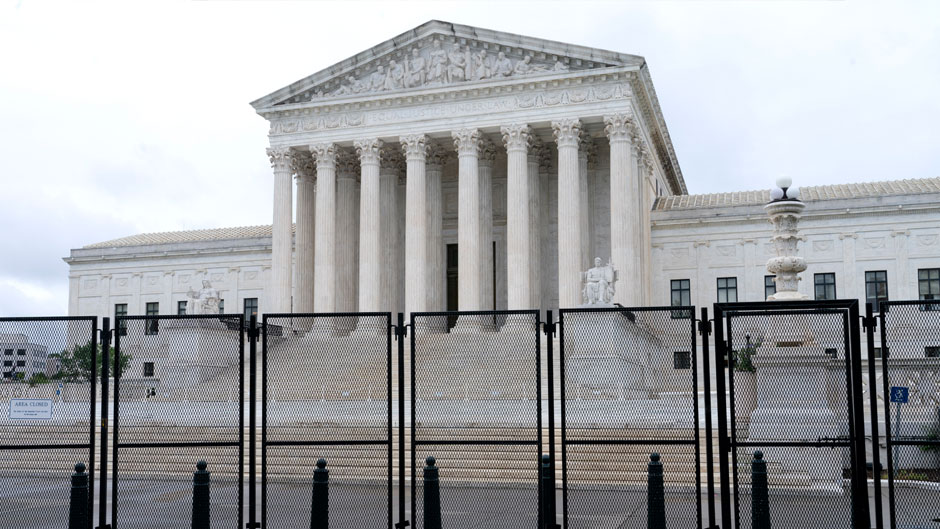Legal experts have called the current U.S. Supreme Court term one of the biggest in recent memory, with major decisions on abortion, gun control, religious freedom, and climate change expected before the court adjourns for the summer.
One of those decisions came Thursday, when the high court, in a ruling with nationwide implications, overturned a century-old New York concealed carry gun law, ruling that the Constitution provides a right to carry a firearm outside the home.
“The Supreme Court has greatly expanded Second Amendment rights with this decision,” said Caroline Mala Corbin, professor of law and Dean’s Distinguished Scholar at the University of Miami School of Law. “It basically says that there is a Second Amendment right to carry a weapon in public. State laws that restricted that right by making concealed carry illegal or very difficult will be struck down as unconstitutional.”
The case, New York State Rifle & Pistol Association Inc. v Bruen, concerns a New York state concealed carry law that requires gun owners to show “proper cause” or a specific special need to carry a handgun in public.
“The constitutional right to bear arms in public for self-defense is not ‘a second-class right, subject to an entirely different body of rules than the other Bill of Rights guarantees,’ ” Justice Clarence Thomas wrote in the majority opinion. “We know of no other constitutional right that an individual may exercise only after demonstrating to government officers some special need.”
Five other justices—Chief Justice John G. Roberts Jr. and justices Samuel A. Alito Jr., Neil M. Gorsuch, Brett M. Kavanaugh, and Amy Coney Barrett—joined Thomas in his opinion.
While gun rights advocates applauded the 6-3 ruling, gun safety proponents criticized it, warning that it will severely hamper efforts to curb firearm-related violence.
Invoking mass shootings in Uvalde, Texas; Buffalo, New York; and elsewhere, Justice Stephen Breyer wrote the dissenting opinion. “Many States have tried to address some of the dangers of gun violence just described by passing laws that limit, in various ways, who may purchase, carry, or use firearms of different kinds,” Breyer wrote. “The Court today severely burdens States’ efforts to do so.”
Breyer, who is retiring from the Supreme Court at the end of the current term, was joined in his opinion by justices Sonia Sotomayor and Elena Kagan.
Corbin called Thursday’s ruling startling. “First, it’s amazing that [the court] seems unmoved by the atrocities the rest of us read about every day,” she said, alluding to the recent mass shooting in Texas and New York. “And what’s more amazing is those atrocities play no role in determining whether gun regulations are constitutional or not.”
She elaborated on how Thursday’s ruling made almost absolute the protection to carry firearms in public.
“Usually, with constitutional rights, there’s a two-step process for determining whether regulations violate the right,” Corbin explained. “The first question is, ‘is this right protected by the Constitution?’ But even if it is, the government can still regulate if it has a compelling interest behind it. With gun laws, for example, the government has a compelling interest in not having mass shootings every other day. And usually that’s something courts will consider in deciding whether a regulation is constitutional,” she added. “But states may only regulate people’s right to carry guns in public if the regulation is parallel to some historical regulation. So, unless the state can show that its regulation is one grounded in history, it will be unconstitutional.”
The New York law struck down by the Supreme Court on Thursday is not unique, as several states had similar legislation on the books, including Massachusetts and New Jersey.
“Those laws will be invalidated as the New York law was,” said Craig Trocino, associate professor of clinical legal education at the School of Law and director of the Innocence Clinic. “Other states have concealed carry regulations that are merely licensing schemes where one can get the permit for essentially any reason. Those laws will remain unchanged. But I suspect state legislatures will act to remove all restrictions around guns.”
The full impact of the court’s ruling will be felt immediately in New York and in other states with similar laws, Trocino said. “I anticipate a proliferation of so called ‘constitutional carry’ laws to be brought forth in state legislatures that will remove all restrictions on carrying a gun so that anyone is permitted to carry a gun for any reason in any location at any time,” he explained.

